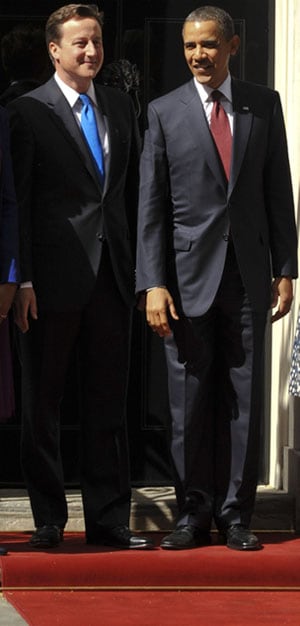MILESTONES: EU
By Anita Hawser
The proposed Tobin Tax, or financial transaction tax (FTT), is a political hot potato that is being kicked around by various European countries in the wake of the global financial crisis as a means of robbing Peter to pay Paul.
 |
|
Cameron and Obama united in opposition to Tobin Tax |
| Photo Credits: CAMERON, OBAMA: FEATUREFLASH / Shutterstock.com |
Since the tax was first mooted in the wake of the 2007–2008 global financial crisis, it has received widespread public support, with celebrities and faith organizations putting their weight behind it.
France and Germany are among the tax’s staunchest supporters. However, what started as a G20 proposal has since turned into one that is supported only by a handful of European countries. The UK’s David Cameron is a vociferous opponent of the tax. The prime minister says it already imposes stamp duty on financial transactions, and that an FTT could see firms locate to other centers where the tax is not imposed. Sweden and the Czech Republic also oppose the tax, and US president Obama is no fan.
In September of last year, the European Commission issued a draft directive for an EU-wide financial transaction tax to be implemented January 1, 2014. The tax is to be levied on all equities and bond transactions at 0.1% of their value, and on exchange-traded and OTC contracts at 0.01% of their “notional underlying value.” EC estimates suggest the tax could raise around €57 billion ($72 billion) in revenues annually. However, many industry associations and policy working papers describe the tax as unworkable and say most of the burden is likely to be borne by those that actually trade financial instruments (companies, pension funds and insurance companies).
A policy research working paper published by the World Bank Development Research Group’s finance and private-sector development team concluded that efforts to raise a significant amount of revenue from a financial transaction tax was “likely to fail, both by raising much less revenue than expected and by generating far-reaching changes in economic behavior.” The Alternative Investment Management Association concluded that the tax “would reduce liquidity, impede price discovery and increase the price impact of trades.”
The EU’s own research suggests that the tax could reduce EU GDP growth by 0.53%.



